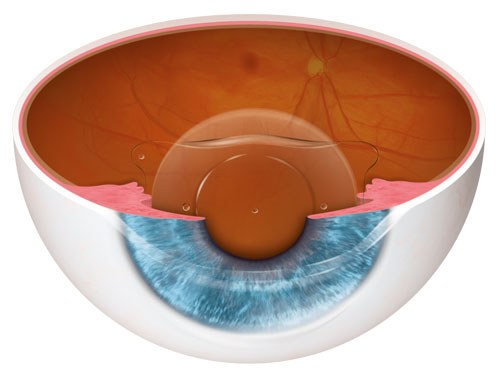
In recent years, refractive surgical procedures like LASIK and PRK have become a highly sought-after means of vision correction. These procedures involve surgically reshaping the cornea to improve a patient’s vision.
While refractive surgeries, like LASIK and PRK, are generally considered to be safe and effective and have high patient satisfaction rates, no surgical procedure is without potential risks and side effects. LASIK has been associated with a risk of dry eye during the recovery period.[1] PRK is also linked to dry eye side effects during recovery.[2]
Dry eye is a condition caused by a lack of tears or poor tear quality, leading to inadequate lubrication of the eyes. Most people associate dry eye with symptoms such as[3]:
Symptoms of dry eye can be uncomfortable, and they can also impede a person’s ability to see clearly when driving at night or when engaging in normal activities. While most people think of dry eye as a nuisance, the truth is that a lack of proper lubrication can increase the risk of eye infections, corneal abrasions, corneal ulcers, and other potentially serious conditions.[4]
A recent study led by the FDA found that up to 30% of patients who did not previously have dry eye experienced symptoms of dry eye after LASIK surgery. The rate of dry eye in LASIK patients who already struggled with that condition was up to 60%.[5]
So how does LASIK cause dry eye, and is it permanent?
During the LASIK procedure, a blade or laser is used to cut a corneal flap, then the cornea is reshaped to correct refractive errors that lead to blurred vision. The corneal flap is so small that no sutures are needed once the procedure is completed. However, it is believed that during this process some of the nerves of the cornea are cut. This does not affect the patient’s vision, but could interfere with the way the cornea and tear glands communicate, leading to symptoms of dry eye.[6]
While the majority of LASIK recipients experience only temporary symptoms of dry eye in the first 6-12 months following the procedure (as corneal nerves heal), this becomes a permanent side effect for a small number of patients.[7] Most patients who encounter dry eye symptoms following LASIK surgery find relief using over-the-counter lubricating eye drops or artificial tears.
Patients who previously suffered from dry eye, women, and patients who need a high degree of refractive correction are at the highest risk for developing dry eye after LASIK.[8]
If you suffer from dry eye disease or have concerns about developing dry eye after LASIK or another surgery, you should know that you might have another option: vision correction surgery with the EVO ICL Lens.
The EVO ICL Lens (Implantable CollamerⓇ Lens) is a different type of refractive procedure, and is often an option for patients with dry eye or who are not candidates for LASIK and other refractive procedures. Unlike procedures that involve surgically reshaping the cornea, the EVO ICL is an artificial lens that is implanted in the eye to correct common refractive errors like nearsightedness (myopia) and astigmatism.
Since it is made from a biocompatible Collamer that works in harmony with the body’s natural chemistry, the EVO ICL does not cause dry eye syndrome.[9] Most patients enjoy near-immediate vision improvement after the approximately 20-30 minute EVO ICL procedure with 99.4% of EVO patients in a survey saying they would have the procedure again.[10] Also unlike LASIK and similar refractive procedures, vision correction with EVO ICL is removable by a doctor, so if your prescription changes or you have additional vision needs, your doctor can simply remove the lens.
If you are ready to learn more about how you may be able to achieve your best possible vision with refractive surgery, please contact us Click here to schedule a consultation with an experienced eye surgeon. We will help you make an educated decision about which procedure will best meet your needs.